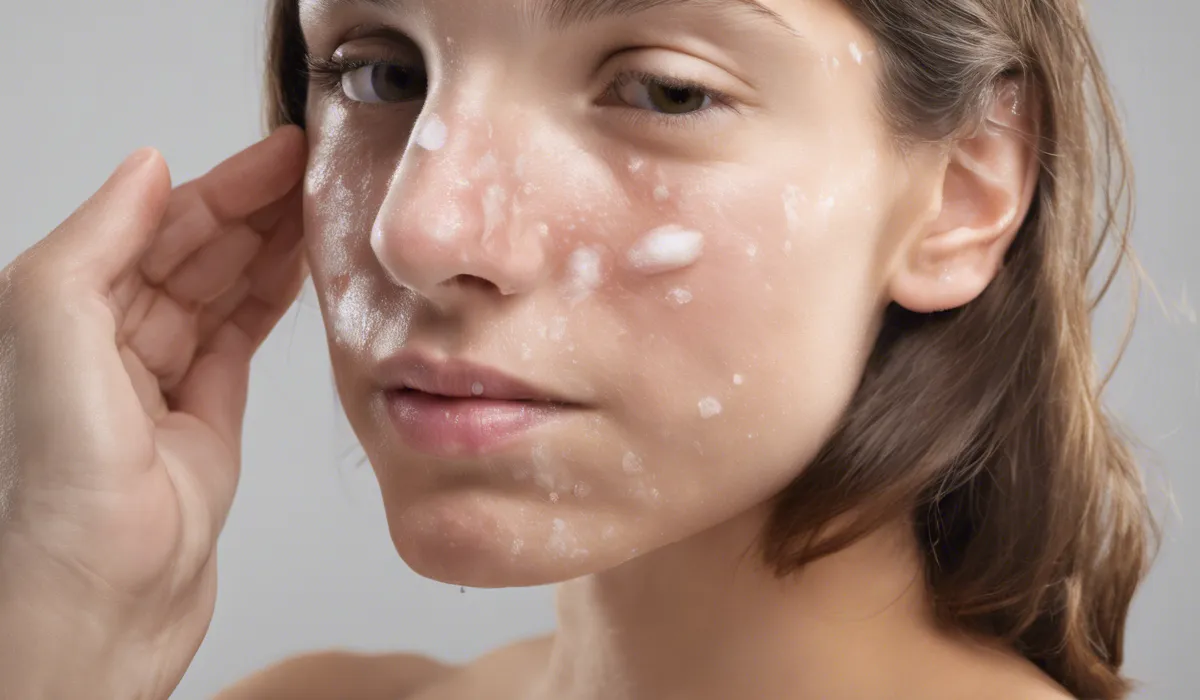Ears smelling like mildew is often due to a bacterial or fungal infection. Earwax buildup, moisture, or poor hygiene can create a breeding ground for microbes, leading to an unpleasant odor.
It’s crucial to maintain ear cleanliness and seek medical advice if the condition persists.
Causes of Mildew-like Smell in Ears

Excessive Earwax Buildup
Earwax is a natural substance that helps protect the ear canal. However, when it accumulates excessively, it can lead to blockages and create an environment where bacteria and fungi thrive.
This excess buildup can cause a mildew-like smell to emanate from the ears. It is important to note that earwax is necessary for ear health, so the goal is not to remove all of it but to maintain a healthy balance.
Bacterial Infections
Bacteria are common culprits behind unpleasant ear odors. When the ear’s natural defenses are lowered, bacteria can proliferate, leading to infections such as otitis externa, more commonly known as swimmer’s ear.
These infections can produce a foul smell as bacteria release waste products.
Fungal Infections (Otomycosis)
Fungi, like bacteria, can also infect the ear canal. Otomycosis is an ear infection caused by fungi, often occurring when the ear’s microenvironment is altered by moisture or injury.
The infection can cause a musty or mildew-like smell and may require antifungal treatment.
Poor Hygiene Practices
Regular cleaning of the ears is essential to prevent odor. However, there is a fine line between cleaning and over-cleaning that can lead to problems.
Poor hygiene practices, such as infrequent cleaning or using inappropriate objects to clean the ears, can lead to a buildup of earwax and debris, resulting in a bad smell.
Water Trapped in the Ear Canal
Moisture trapped in the ear canal, often after swimming or showering, can create a breeding ground for bacteria and fungi.
If the water is not properly drained or evaporated, it can lead to infections that produce a mildew-like odor.
Skin Conditions (Eczema, Dermatitis)
Skin conditions such as eczema or dermatitis can affect the skin of the ear canal. These conditions can cause flaking, itching, and inflammation, which can lead to infections and a resulting foul smell.
Prevention and Hygiene Tips

Proper Ear Cleaning Techniques
Cleaning your ears properly is key to preventing odors. It is recommended to gently wipe the outer ear with a warm, damp cloth and avoid inserting anything into the ear canal.
Over-cleaning can strip the ear of its natural oils, which can lead to dryness and irritation.
Avoiding Overuse of Earplugs or Headphones
Excessive use of earplugs or headphones can trap moisture and prevent earwax from naturally exiting the ear canal.
This can create an environment for bacteria and fungi to grow. Limiting their use and ensuring they are clean can help prevent ear infections and associated smells.
Keeping Ears Dry After Exposure to Water
After swimming or showering, it’s important to dry your ears thoroughly. Tilting your head and gently pulling on the earlobe can help water drain out. You can also use a towel to gently dry the outer ear.
Using Protective Gear When Swimming
Wearing earplugs or a swimming cap can help prevent water from entering the ear canal while swimming. This protective gear is especially important for those prone to ear infections.
When to Seek Professional Ear Cleaning?
If you suspect earwax buildup or have difficulty hearing, it’s time to see a healthcare provider for professional ear cleaning. This is a safe way to remove excessive earwax without risking damage to the ear.
When to See a Doctor?

Persistent Unpleasant Smell
If the mildew-like smell from your ears persists despite good hygiene practices, it may be time to consult a doctor. Persistent odors can indicate an underlying issue that requires medical attention.
Symptoms of Infection (Pain, Discharge, Fever)
Signs of an ear infection, such as pain, discharge, or fever, should not be ignored. These symptoms require prompt medical treatment to prevent complications and resolve the infection, which will also get rid of the bad smell.
Hearing Loss or Changes in Hearing
Experiencing hearing loss or changes in hearing can be alarming. These symptoms can be related to a buildup of earwax or an ear infection. A healthcare provider can diagnose the cause and provide the appropriate treatment.
Preventative Check-Ups for Recurring Issues
For those with recurring ear problems, regular check-ups with a healthcare provider can help manage the condition and prevent future occurrences of unpleasant smells or infections.
Treatment Options
Depending on the diagnosis, treatment options may include medication, ear drops, or professional ear cleaning. Adhering to the treatment plan prescribed by your healthcare provider is crucial for resolving any ear issues and associated smells.
FAQs About Ears Smelling Like Mildew
Why do my ears smell like mildew?
Ears may smell like mildew due to a bacterial or fungal infection, often exacerbated by moisture, earwax buildup, or inadequate hygiene.
Can earwax buildup cause my ears to smell?
Yes, earwax buildup can lead to a bad smell as it can trap bacteria and fungi, which can grow and produce an unpleasant odor.
Could poor hygiene be the reason my ears smell like mildew?
Poor hygiene can contribute to the growth of microbes in the ear, leading to infections that cause a mildew-like odor.
Should I see a doctor if my ears have a mildew smell?
Yes, if the condition persists or is accompanied by other symptoms like pain or discharge, it is important to seek medical advice.
How can I prevent my ears from smelling like mildew?
Maintain good ear hygiene, keep ears dry, and clean them regularly but gently to prevent infections that can cause a mildew smell.
Final Thoughts
Ears emitting a mildew-like odor typically signal a bacterial or fungal infection. Contributing factors such as accumulated earwax, retained moisture, or inadequate hygiene can foster microbial growth.
To prevent this, regular ear care is essential. Persistent issues should prompt a consultation with a healthcare provider for proper diagnosis and treatment.
